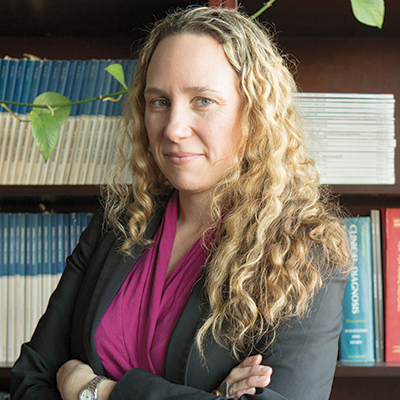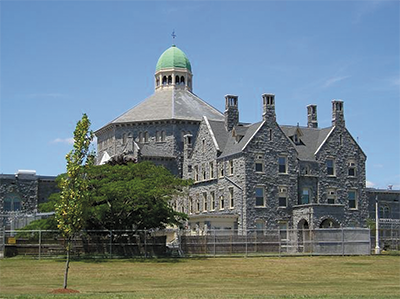The files contained a large part of the story of the opioid epidemic in Rhode Island: autopsies and toxicology reports, police reports and witness statements, medical records and death scene photographs.

“This whole time you’re reading through this folder … you know how it’s going to end: it’s tragic,” said Rich, professor of medicine and epidemiology at Brown. “It’s the death scene photographs—you can’t unsee those. One image was a woman who was pregnant and had a baby shower earlier in the day, and in the photo she is just slumped among all the presents she had just received. It weighs on you, the magnitude of this epidemic and tragedy.”
In the four years before Rhode Island Gov. Gina Raimondo took office in 2015, opioid deaths in the state nearly doubled. One of her first moves in office was to create a task force to confront the opioid epidemic, and she tapped three experts from Brown—Rich; Brandon Marshall, an associate professor of epidemiology at Brown’s School of Public Health; and Traci Green, an adjunct associate professor of emergency medicine and epidemiology—to help lead the way.

“As expert advisors, we had 90 days to come up with an actionable plan to confront the crisis,” Rich said. “So we scrambled. And Traci, she’s brilliant. She said, ‘We have to find out why people are dying. We have to go to the medical examiner’s office.’”
Green’s instincts were correct, and their hours spent combing through files yielded important answers—prominently, that heroin laced with fentanyl, a highly potent opioid, was often the cause of these overdose deaths. This insight led to action, including a groundbreaking program of addiction treatment for prisoners in the state.
In Rhode Island, overdose deaths increased by nearly 90 percent between 2011 and 2017, with 250 to 300 people dying annually. In 2017, more than 70,000 Americans died from overdoses, according to the Centers for Disease Control and Prevention, and the U.S. Department of Health and Human Services officially declared the opioid crisis a public health emergency.
Reasons For Hope
“Research into opioid use and treatment is an urgent national priority. Against this bleak picture of a national opioid crisis, though, Rhode Island and Brown University have offered reasons for hope,” said Brown University President Christina Paxson, speaking at an October 2018 “Frontlines of the Opioid Crisis: Innovative Science-Based Solutions” event at Brown cosponsored by the American Academy of Arts and Sciences.
“In 2017, opioid-related deaths have dropped … in Rhode Island, the first significant decline in almost a decade. And the state and Brown continues to be widely recognized for generating innovative research and treatment plans that are helping to ease the crisis, and which could provide models for the rest of the country,” Paxson said.
Efforts to combat drug use in the United States have long focused on incarceration and criminal justice deterrents. However, Rich, Green, and Marshall all found through their research that criminal justice efforts are not the most effective ways to deter or rehabilitate people who use drugs. Much of their work offers an alternative focused on expanding treatment and rehabilitation options, and reducing the stigma around opioid addiction.
“Instead of bringing people into the criminal justice system, we need to bring them into treatment,” Rich said. “Individuals don’t die of opioid overdoses because we didn’t have enough arrests, incarceration, or police presence. They die because we have too much of that and not enough treatment.”

